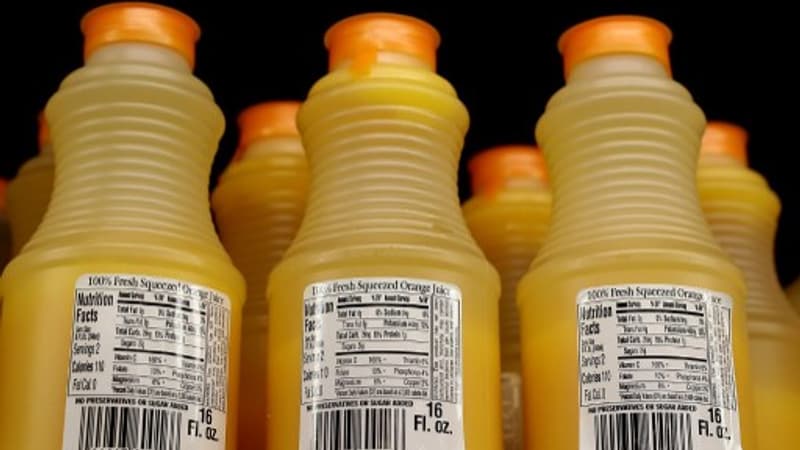They describe “an unprecedented situation.” In a press release published on Thursday and broadcast by beverage departmentfruit juice manufacturers represented by Unijus, the inter-professional union of the French fruit juice sector, warn of a “shortage of orange juice concentrates, both conventional and organic (…) on the world market for several weeks”.
“This raw material used to make orange juice from concentrates and orange nectars (23.3% of sales of orange juices and nectars in supermarkets and department stores, Nielsen, 2023) has become very difficult to find for all buyers in the juice sector,” observes Unijus, adding that “orders from concentrate suppliers are now subject to quotas for all companies wishing to buy them, a situation never encountered by older buyers!”
Among the main causes of this shortage, the vagaries of the weather that “affected several orange-producing regions,” including Florida, where production “has never been low after Hurricane Ian in September 2022,” says Unijus. The interprofessional thus recalls that despite the fact that the demand for US orange juice “continues to be strong, US production has continued to fall for 10 years to only 16 million boxes in 2022/2023 compared to another 41 million boxes the previous year and 134 million boxes 10 years”. back!”.
For its part, the production of the Mexican neighbor fell by 30% due to the drought. Same observation in Spain, again due to the lack of water. Under these conditions, much of the production now depends on Brazil. But the world’s leading supplier cannot “fulfill all the orders that come from all the continents.”
Price increases and stock shortages.
According to the president of Unijus, Emmanuel Vasseneix, “global warming is accelerating things.” “Florida is disengaging from citrus growing in favor of real estate construction. As a result, US juice makers are turning to Brazil, a country where 85% of orange juice is handled by three players,” he explains. As a result, “the flows that were going to Europe are now being diverted to the United States, which is putting pressure on prices. Today a ton of concentrated juice is bought at 3,400 euros, compared to 2,600 euros in the previous harvest”.
At this stage, the shortage refers mainly to orange juice concentrates. But “it could also affect pure juices in the coming weeks due to the domino effect”, continues Unijus, which foresees that this situation will continue “until September-October 2023, that is, until the next orange juice harvest that will begin to mid-June 2023”.
Meanwhile, orange juice bottlers warn that they may have “difficulty fulfilling their orders for concentrate-based products from their distributor customers.” As a result, “pearl hazards or dry breaks” could occur on store shelves. Prices are also expected to rise as “current vendor prices” are “50% higher than what was offered last summer.”
Source: BFM TV


